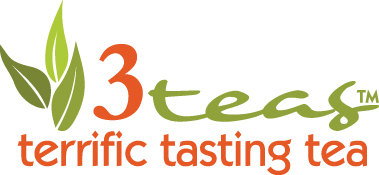News / blog
Spiced Apple Chai Cider
In the middle of winter our thoughts turn to warm drink and a book by the fire. Here is one warm drink that is sure to please!
Ingredients
- 1 cup (250mL) boiling water
- 3 tsps 3 Teas Masala Chai
- ½ cup (125mL) apple cider (hard or soft)
- 1 teaspoon (5mL) sugar, optional
- 2 tablespoons (30mL) whipping cream, optional
- 1 cinnamon stick
Instructions
Steep tea with boiling water for 5 minutes. Add hot apple cider Add sugar and top with whipping cream, if desired. Garnish with a cinnamon stick and grab your favourite book. Enjoy!
Is tea good for your brain?
Recent studies have shown some of the effects of tea on brain function.
- A recent human study examined the effect of the unique tea amino acid L-theanine on attention related task performance. Task performance was measured by tracking electrical activity produced by the brain ( via EEG). The results suggest L-theanine plays a role in processing attention in synergy with caffeine. (1)
- A published randomized human clinical trial found that subjects given a daily supplement with green tea extract and L-theanine extracted from tea experienced improvements in mild cognitive impairments (MCI). (2)
- Caffeine and L-theanine in tea may offer cognitive benefits and improve mental clarity and work performance. A cross-sectional study showed that participants who consumed more tea felt less tired and reported higher levels of subjective work performance. (3)
- A double-blind, placebo controlled crossover study showed that the flavonoid EGCG (found in green tea) was associated with a significant increase in self-rated calmness and reduced self rated stress. This is in keeping with the widespread consumption of green tea for its purported relaxing/refreshing properties.
1. Kelly SP, Gomez-Ramirez M, Montesi JL, Foxe JJ. L-Theanine and caffeine in combination affect human cognition as evidenced by oscillatory alpha-band activity and attention task performance. J Nutr 2008;138:1572S–7S.
2. De Bruin EA, Rowson MJ, Van Buren L, Rycroft, JA, Owen GN. Black tea improves attention and self-reported alertness. 2011. Appetite, 56: 235-240.
3. Bryan J, Tuckey, M, Einöther S.J.L. et al. The relationship between tea and other beverage consumption, work performance and mood. Appetite, 2012. 58 (1), 339–346
4. Scholey A; Downey LA; Ciorciari J; Pipingas A; Nolidin K; Finn M; Wines M; Catchlove S; Terrens A; Barlow E; Gordon L; Stough C Acute neurocognitive effects of epigallocatechin gallate (EGCG). Appetite. 58(2):767-70, 2012 Apr.
Pairing Tea with Food
Here are a few examples to get you started:
White Tea
White tea is subtle so pair it with light tasting foods such as vegetables and white chocolate.
Green Tea
Green tea has a light vegetal/grassy taste so pair it with mild fish or chicken. Salads are also a good choice as is simple fruit like melon
Oolong
Oolongs are more complex and cover a range from light (closer to green tea) to more oxidized (closer to black tea). Try a lighter oolong with seafood or cheese and crackers. Use a more oxidized oolong with grilled salmon or smoked meat
Black Tea
Black tea is more robust and can be paired with spicy foods. Flavored black teas also do well with a sweet dessert.
Follow link to a great chart from the Tea Association of Canada with even more ideas on how you can pair teas with food! Enjoy.
http://www.tea.ca/wp-content/uploads/2014/12/Tea-and-Food-Pairing-Chart_EN.jpg
Cold Steeping, perfect for summer!
Energy efficient and simple, cold steeped teas have less bitterness and less caffeine. Unlike "sun tea", where you leave your tea in the sun to brew, there are no food safety concerns with cold steeping. Cold brewing also brings you a cleaner, less astringent cup. Any type of tea can be used but green , white and oolong teas produce the best cups. Herbal fruit teas also do well. Experiment with your own favorite and let us know!
To make cold steeped tea simply add one teaspoon of loose leaf tea per cup of fresh cold water, place in a suitable container and leave in your fridge overnight (at least 8 hours). Strain out the leaves and enjoy!
What's the difference between Green Tea and Black Tea??
All tea comes from the Camellia Sinensis plant. The difference is in how much the leaves are oxidized and processed after they have been plucked. During the oxidation process the leaves undergo chemical reactions that result in the variations of taste and colour. Heating stops the oxidation process.
There are 4 main types of tea:
Green tea may be rolled or processed and then heated quickly to stop oxidization before it truly begins to happen.
White tea is left to oxidize for a very short period before heating. White tea is usually not processed at all.
Oolong tea is partially oxidized and has some of the characteristics of both green and black tea. Oolong leaves may be rolled or twisted. Oolong are very aromatic and full of flavour.
Black tea is the most common type of tea in North America. It is fully oxidized and results in a full rich flavour and amber liquor.
Herbal teas are not made from the Camellia Sinensis plant but are infusions of herbs, leaves, flowers, fruit or other plants.

